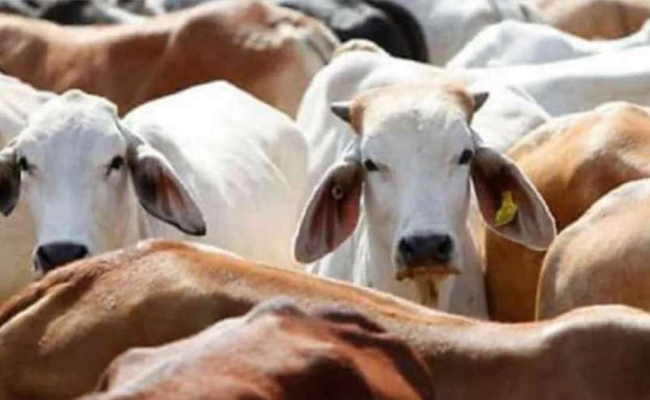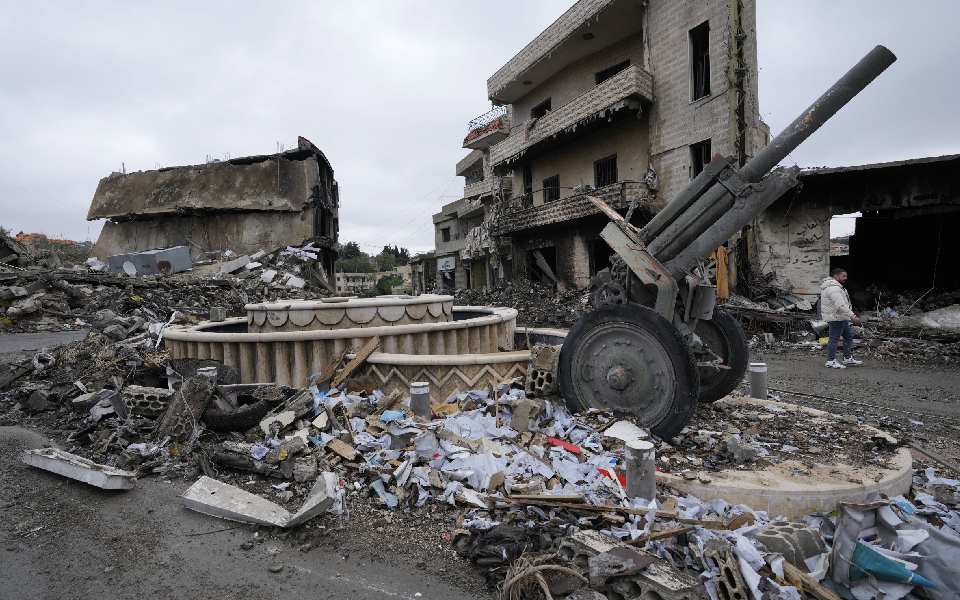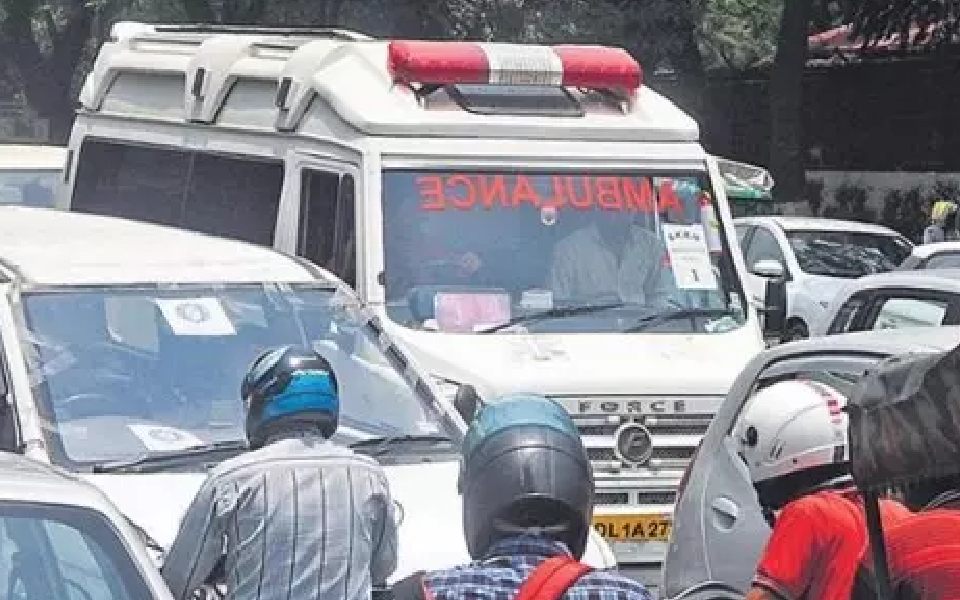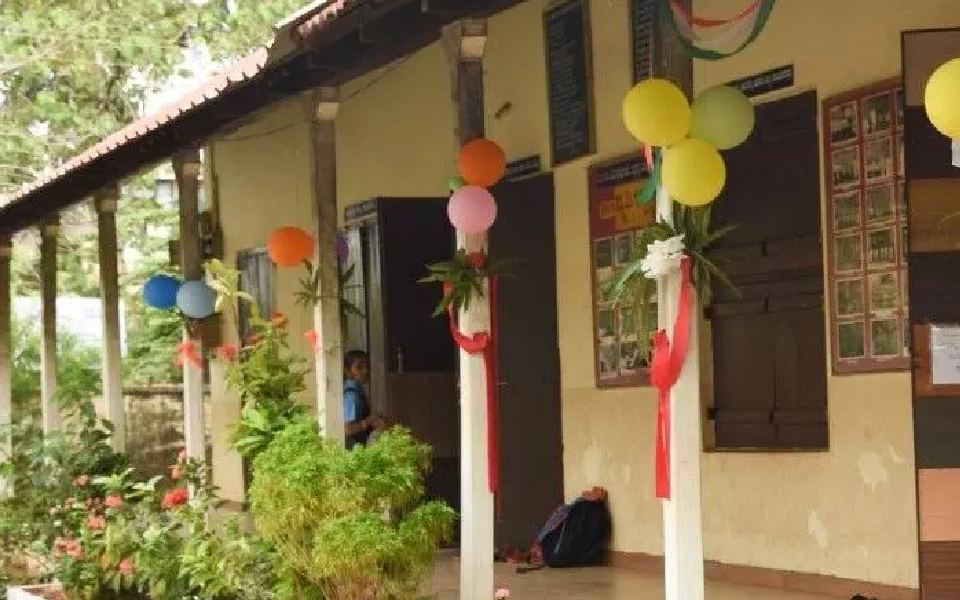Kohima (PTI): The Nagaland government has decided not to grant permission to ‘Gau Mahasabha’ (mega meeting for cows) in Kohima on September 28, a senior minister said on Wednesday.
Shankaracharya of Jyotirmath, Swami Avimukteshvaranand Saraswati, is scheduled to preside over the meeting.
In Christian-majority Nagaland, beef is consumed by a majority of the population.
The decision not to allow the programme was taken during a Cabinet meeting chaired by Chief Minister Neiphiu Rio, government spokesperson and minister C L John told reporters here.
The Cabinet highlighted the protection given under Article 371A of the Constitution on the religious and social practices of the Nagas as well as the Naga customary law and procedure, John said.
During the meeting, the Cabinet was apprised of the opposition voiced by various civil society organisations and political parties in the state.
Objections to the event were raised by the ruling Nationalist Democratic Progressive Party (NDPP), its allies BJP as well as the Naga Peoples’ Front (NPF) and civil society organisations such as Naga Mothers’ Association and Naga Students’ Federation.
John said, “The Cabinet did not grant permission to hold the programme in the interest of maintenance of public order.”
The government is also of the view that it will be better for the organisers not to come to Nagaland to hold that programme, the minister said.
“Beef has been part of the Naga cuisine since time immemorial,” Naga Mothers’ Association president Vilanuo Yhome told PTI.
The state BJP also denounced the proposed programme.
“It has nothing to do with the Nagaland BJP. It is imperative to address this issue in the context of Nagaland’s socio-religious and cultural fabric,” state BJP president Benjamin Yepthomi said in a statement.
Let the Truth be known. If you read VB and like VB, please be a VB Supporter and Help us deliver the Truth to one and all.
Beirut, Nov 28: The Israeli military on Thursday said its warplanes fired on southern Lebanon after detecting Hezbollah activity at a rocket storage facility, the first Israeli airstrike a day after a ceasefire between Israel and Hezbollah took hold.
There was no immediate word on casualties from Israel's aerial attack, which came hours after the Israeli military said it fired on people trying to return to certain areas in southern Lebanon. Israel said they were violating the ceasefire agreement, without providing details. Lebanon's state-run National News Agency said two people were wounded.
The back-to-back incidents stirred unease about the agreement, brokered by the United States and France, which includes an initial two-month ceasefire in which Hezbollah members are to withdraw north of the Litani River and Israeli forces are to return to their side of the border. The buffer zone would be patrolled by Lebanese troops and UN peacekeepers.
On Thursday, the second day of a ceasefire after more than a year of bloody conflict between Israel and Hezbollah, Lebanon's state news agency reported that Israeli fire targeted civilians in Markaba, close to the border, without providing further details. Israel said it fired artillery in three other locations near the border. There were no immediate reports of casualties.
An Associated Press reporter in northern Israel near the border heard Israeli drones buzzing overhead and the sound of artillery strikes from the Lebanese side.
The Israeli military said in a statement that “several suspects were identified arriving with vehicles to a number of areas in southern Lebanon, breaching the conditions of the ceasefire.” It said troops “opened fire toward them” and would “actively enforce violations of the ceasefire agreement.”
Israeli officials have said forces will be withdrawn gradually as it ensures that the agreement is being enforced. Israel has warned people not to return to areas where troops are deployed, and says it reserves the right to strike Hezbollah if it violates the terms of the truce.
A Lebanese military official said Lebanese troops would gradually deploy in the south as Israeli troops withdraw. The official spoke on condition of anonymity because they were not authorized to brief media.
The ceasefire agreement announced late Tuesday ended 14 months of conflict between Israel and Hezbollah that began a day after Hamas' Oct. 7, 2023 attack out of Gaza, when the Lebanese Hezbollah group began firing rockets, drones and missiles in solidarity.
Israel retaliated with airstrikes, and the conflict steadily intensified for nearly a year before boiling over into all-out war in mid-September. The war in Gaza is still raging with no end in sight.
More than 3,760 people were killed by Israeli fire in Lebanon during the conflict, many of them civilians, according to Lebanese health officials. The fighting killed more than 70 people in Israel — over half of them civilians — as well as dozens of Israeli soldiers fighting in southern Lebanon.
Some 1.2 million people were displaced in Lebanon, and thousands began streaming back to their homes on Wednesday despite warnings from the Lebanese military and the Israeli army to stay out of certain areas. Some 50,000 people were displaced on the Israeli side, but few have returned and the communities near the northern border are still largely deserted.
In Menara, an Israeli community on the border with views into Lebanon, around three quarters of homes are damaged, some with collapsed roofs and burnt-out interiors. A few residents could be seen gathering their belongings on Thursday before leaving again.





